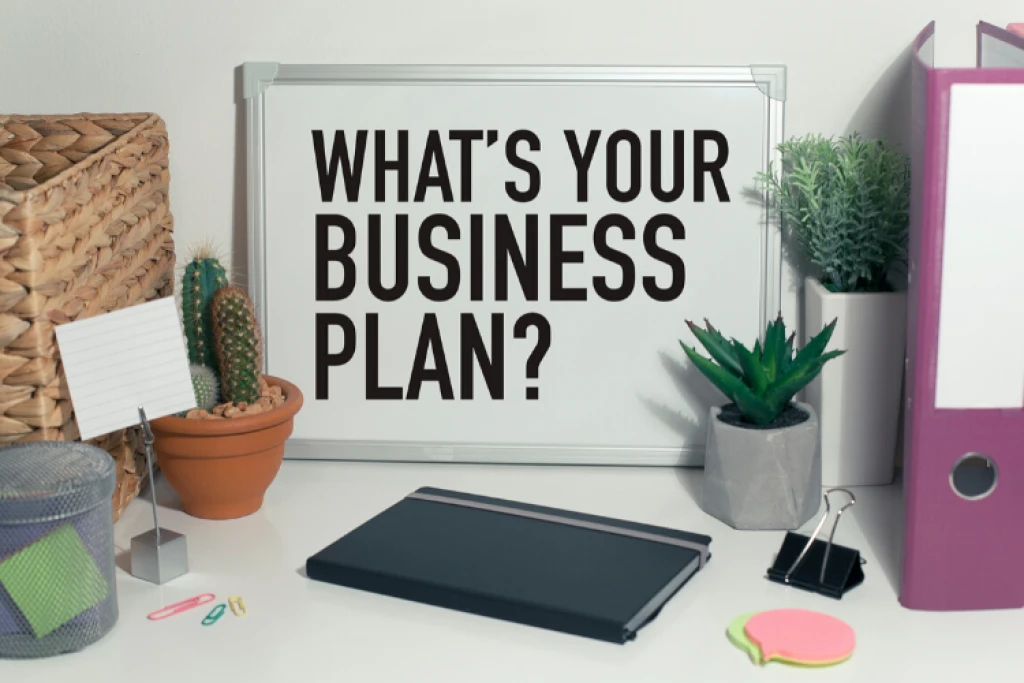What is a business plan template?
HOME / / What is a business plan template?
Know you need a business plan - but not sure where to start?
If you're overwhelmed at the thought of writing your first business plan, you’re not alone! Lots of people find the idea intimidating.
But a well-structured business plan is a game-changer. It acts as a roadmap for your journey into self-employment, giving you a clear idea of your destination, direction of travel and what landmarks to look out for on the way.
Start planning your business journey
Here at Transmit Startups, we’re dedicated to simplifying and demystifying business, to help people follow their dreams of self-employment.
We think this template from the British Business Bank is a great starting point.
What is a business plan?
A business plan is a document which sets out in detail exactly how you’ll run your business.
It considers:
what your products and services are
how you’ll promote and sell them
how you’ll fund your business
who your customers and competitors are

Your final business plan will also include details of your financial forecasts, explaining how much money you think you will make and how.
Business plan templates ask for market research, looking at how big your market is and who your customers are. You can segment your markets too.
Many business plans include a section explaining how many employees you will need, how and when you'll recruit them and how many you will recruit.
Why do you need a business plan?
A good business plan will guide you through each stage of starting your business. Think of it like preparing for a long road trip. Once you've planned the route you can start making sure you have enough petrol, and decide who’s going to do the driving. Imagine how lost you could get without that prior preparation…
1. Setting the destination
Just as you would input your destination into a GPS, your business plan outlines your ultimate objectives and goals. It gives you a clear vision of where you want to take your business.
And it helps you make sure your idea is feasible. You’ll have to think through details like how much money it could make vs how much money you’ll have to invest.
2. Mapping the route
Your business plan gives you a place to list specific goals and objectives for your business. And you can use it to identify the different routes and strategies to reach your goals in the most efficient and effective way.
You’ll have to think about how you’ll meet these goals and what the timescale is. By making financial forecasts (like a cashflow forecast), you can work out how much your business needs to make in order to support your lifestyle. How long do you want to work in order to make the money you aspire to?
3. Identifying resources
Business planning helps you understand the financial reality of your business idea. Do you have the resources you need to get started - whether that's stock, premises, funding or staff?
Not everyone starting a business needs to access business finance. There are plenty of businesses you can start with no money. However, some do need startup funding. If you do plan to apply for a loan, a business plan is essential. It shows lenders that you’ve thought things through and will be able to afford repayments.
What does it mean to "pivot"?
In the startup world, pivoting means shifting to a new strategy. But it doesn’t necessarily mean a drastic change to your whole business plan.
If you’ve identified one important problem or one incredible opportunity, you may only need to change one area of your strategy.
4. Avoiding traffic and obstacles
If you accidentally take a wrong turn, your GPS will recalculate the route. Your business plan needs to be adaptable, too. Take some time to think about what challenges you could face and who your competitors are.
You’ll also need to really think about your customers, what they want and how you’ll sell to them. Being prepared for obstacles and opportunities means you can shift to a new strategy if you need to pivot your business... And avoid getting stuck in a traffic jam.
5. Staying safe and compliant
Having a plan will stop you wandering down unsafe paths. Just as you need to know the traffic rules and regulations of the area you're driving through, a business plan will help you ensure that you're legally compliant, for example by identifying any licenses you need for your business.
And what about financial paperwork? Do you need to complete a self-assessment tax return? What steps do you need to take to register your business in the UK? Getting everything in place before you begin trading will make sure you're operating legally - and avoid any risky turns!
6. Real-time adjustments
Just like a GPS will update and adapt your route if needed, so your business plan will change and grow with you.
Once you've been in business for a while, you will have actual data about sales and cashflow to compare with your planned financial forecasts. This will help you tweak your strategies and plans, and update the ETA based on whether you're on-track to meet your goals.
How do you write a simple business plan?
Business plans don't HAVE to be complicated. If you're thinking of starting a business, you only need to write a simple business plan at first, to help you think through your business and get into the planning mindset.
If you’re struggling to know what to write, just jot down some notes and come back to it later.

What’s in a business plan template?
Business plan templates commonly include the following sections:
1. Your information
The first section is just basic details about you and your business – the who, what and when questions.
2. Your business idea
Next you describe your business or business idea. Write about the main activities of the business and what products or services you offer. There are questions about any premises or licenses you might need, and who else is involved in the business. Don’t worry if these don’t apply to you, just skip forward.
3. Your market
Tell us about your customers and how you’ll reach them. Think about your competitors and how they do things. Then complete a SWOT analysis. This isn’t as hard as it sounds and our SWOT blog post can help.
4. Pricing and selling
Pricing is really important to get right. This section will help you think about pricing as part of your overall business strategy. You’ll also think about suppliers and sellers for your product or service.
5. Loan amount
If you'll be using a loan to fund your business initially, you should include in your plan how much you need to borrow and what you’ll use it for. Think about other sources of income and what expenses you might incur. Consider how much it costs to start a business.
Want a step-by-step guide to writing a business plan?
If you'd prefer not to use a pre-existing template, you can start from scratch by following our guide on how to write a business plan.
Writing a business plan requires research, realistic projections and some careful thought. But it doesn't need to be difficult.
How else can a business plan help?
If you’re a sole trader or microbusiness, your business plan might be for your eyes only. But as you grow and develop, your business plan can help your business bloom.
1. Securing investment or borrowing
A well-written business plan containing relevant figures will help you convince investors your business is a reliable proposition.
2. Satisfying suppliers and distributors
Any distributors you need will want to see your assessment of the risks and threats facing your business, and how you’re managing your supply chain. Suppliers who may need to offer you credit will want to see how well you’ve planned for the future.
3. Motivating and managing staff
Any other people involved with your business should share the same goals as you do. A strong business plan can help guide your workplans and make sure you’re all pulling the same way.
Where can I download a free business plan template?
Right here. The British Business Bank have produced a template, designed to be used to support a Start Up Loan application.
Even if you're at the earliest stages of an idea, you can download it for free and use it to help develop your plans. We'd recommend it to anyone who wants to think about starting a business.
Your business plan is a vital tool for securing loans, and a foundation for making informed decisions. So it's definitely worth doing.
Completed your business plan template and ready to get going?
If you've got an idea for a business and want to talk to someone about funding your idea, you can explore a low-interest Start Up Loan.


"We’re delighted to be the 2000th loan recipients!"
